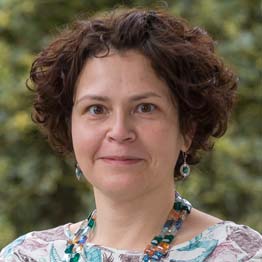24/01/2022
Published in
The Conversation
Sarali Gintsburg
group Public discourse, Institute for Culture and Society, University of Navarra
 The history of African culture goes far back in time: most scientists agree agreement that the first humans evolved in Africa. Some of the oldest remains come from a primitive human site at Olduvai Gorgein Tanzania, and are about 1.8 million years old.
The history of African culture goes far back in time: most scientists agree agreement that the first humans evolved in Africa. Some of the oldest remains come from a primitive human site at Olduvai Gorgein Tanzania, and are about 1.8 million years old.
The word "Africa" was first used to describe the entire continent in the 15th century, but its people have always been at contact with each other and with the rest of the world, trading, fighting or sharing new ideas along the rivers, across the deserts or by the sea. While oral traditions, music and dance are an important feature of Africa, the continent is also home to rich and ancient traditions of written literature.
In ancient times, the Mediterranean coast of Africa was a place where people from the Middle East, Greece and Rome entered contact with people from North and sub-Saharan Africa. In West Africa, African kingdoms existed for thousands of years and by the mid-13th century, Mali became the most powerful empire in West Africa. Other empires and kingdoms such as Songhai and Benin maintained extensive commercial and cultural exchange with neighboring Arab states and Europeans. Contacts with Europe intensified at the end of the 15th century, when Congolese kings converted to Christianity, introduced by Portuguese explorers.
Africa can be dark
Unfortunately, Europe also brought an intensive slave trade to Africa. From the 15th century onwards, these were moved on a massive scale to other continents: we know a lot about the Atlantic triangular trade, but somewhat less about the Indian Ocean slave trade. Very little is known, often anecdotally, about the presence and life of Africans in Europe during this time.
Things got even worse after the Berlin lecture of 1885, when several European states divided the continent into new countries, not according to the cultural, political, linguistic or religious similarities and preferences of Africans, but to the whims of Great Britain, France, Spain, Germany, Portugal, Belgium and Italy. Even today, African conflicts are regularly inspired by the consequences of the land grabbing that took place almost 150 years ago.
Africa is art and technology
African art in all its states and forms is well known and appreciated in Western culture: any respectable museum in this part of the world has a collection of traditional and sometimes even contemporary African art. African folktales, as well as written literature, are well known.
Although this is not often talked about, Africans who were uprooted from their continent to be sold as slaves contributed considerably to the development of technologies in the West. This is the case of Africans in the Americas: the West African diaspora brought the culture of animal domestication and rice cultivation there. The African diaspora in Upper Guinea brought with them the technology of indigo cultivation and processing (when you wear your favorite cowboys, thank the Africans).
Unfortunately, not much has transpired about the African footprint on the development of European technologies.
The new African Europeans: stuck in the past?
For many people of African descent, learning about the continent's past is interesting and a means of discovering their own origins. Famous people, places and cultural objects continue to play an important role in the training of African identities, often looking to both the distant and recent past.
Many artists, poets, novelists, dancers and musicians frequently represent or draw inspiration from African history and traditions when developing their work. In addition, there are several initiatives to create African digital spaces, such as digital archives to document the past.
These initiatives are of great importance. But what is needed now is to focus on contemporary African Europeans (whom we call immigrants and refugees), who are in the majority and whose present is not as glorious as their past.
As the famous African philosopher Leopold Senghor said, modern Africans - and especially immigrants - are torn between their African past and their Western present. They are looking for new identities and we can help them find ways to arrive at a solution that is not too conflicting. Perhaps it is time to think about new museums and participatory spaces: places where African-Europeans can bring together their own heritage, their own present and reflect on their future.
This article was originally published in The Conversation. Read the original.
![]()
